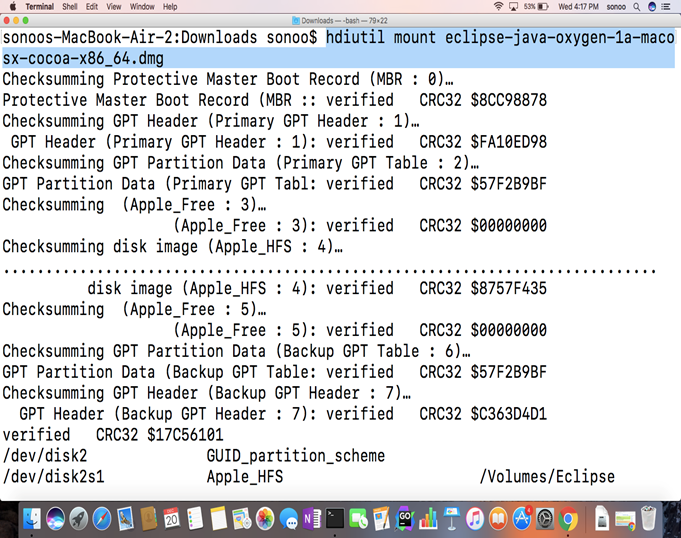

- Install c++ for eclipse on mac how to#
- Install c++ for eclipse on mac install#
- Install c++ for eclipse on mac code#
Switch to the "System" keychain and drag a copy of the "lldb_codesign" you just made onto the Desktop. You'll have to authorize a few more times, set it to be "Always trusted" when asked. Option-drag (this meaning holding the option key down and dragging) the new "lldb_codesign" certificate from the login keychain to the System keychain in the Keychains pane of the main Keychain Access window to make a copy of this certificate in the System keychain. Now close this window, and enter your login password to confirm this change. When using this certificate: Always Trust Open the context menu for "Trust" (click the triangle) and change the following: Click "Create".Ĭlick on the “My Certificates” category on the left side and double click on the new “lldb_codesign” certificate. Open the menu item in /Keychain Access/Certificate Assistant/Create a Certificate.Ĭhoose a name ("lldb_codesign" in the example, but you can use anything you want), set "Identity Type" to "Self Signed Root", and set "Certificate Type" to "Code Signing". In Keychain Access, select the "login" keychain in the "Keychains" list in the upper left hand corner of the window. Open application "Keychain Access" (/Applications/Utilities/Keychain Access.app).
Install c++ for eclipse on mac code#
The following instructions have been taken from this Code Signing guide. By doing so you're telling the operating system that gdb is authorized to attach to other processes for debugging purposes. You need to create a certificate and sign gdb. You'll get an error message like "please check gdb is codesigned".


The result should be gdb version 7 or higher. Open your terminal, and run the following command:
Install c++ for eclipse on mac install#
You need xcode command line tools to install Homebrew.
Install c++ for eclipse on mac how to#
See a Stackoverflow discussion for instructions on how to install the command line tools regardless of whether you have Xcode installed. Xcode is quite a big install, so if you do not want to install it, you can get away with just installing the Xcode command line tools. Xcode is a free integrated development environment similar to Eclipse designed by Apple and mainly intended for iOS development or targeting the clang compiler. Homebrew requires that you have either Xcode or the Xcode command line tools installed on your Mac. Instead of having to download, configure, and install something yourself, all you need to do is run one command, and Homebrew will take care of the rest for you. It's like Ubuntu's apt-get, where one can install packages easily from repositories. Homebrew "installs the stuff that you need that Apple don't". When you follow it, ignore anything about installing Ruby that is, stop after setting up git. If you want an additional guide on all of the following steps (except for installing GCC), the one by Moncef Belyamani is quite helpful. We'll be installing GCC 4.8.1 and GDB through a tool called Homebrew. This section is intended to get you quickly started with C++ programming on your Mac.


 0 kommentar(er)
0 kommentar(er)
